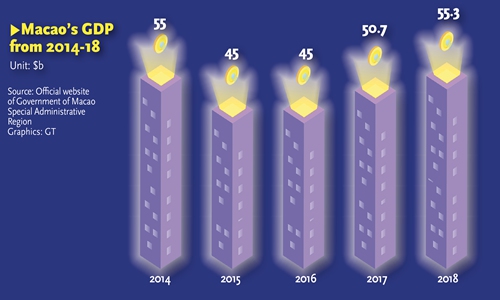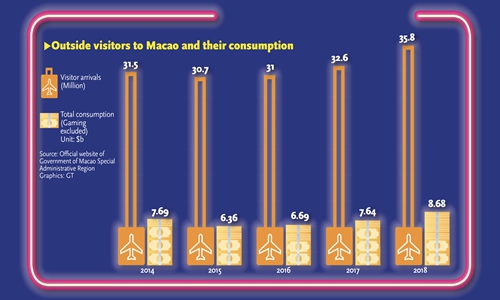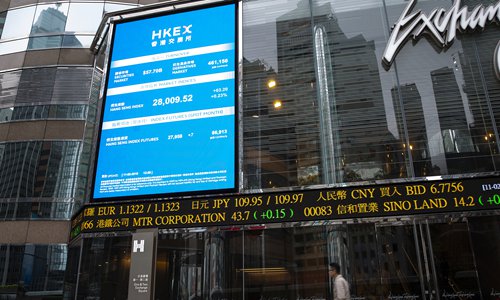
A general view of Ruins of Saint Paul's in Macao Photo: VCG
What's to be expected from a new yuan-denominated bourse to be set up in Macao, the first in the gaming-centric city and the third in the Guangdong-Hong Kong-Macao Greater Bay Area?Business executives and industry insiders in the special administrative region (SAR) told the Global Times in recent interviews that a realistic and gradual approach should be adopted to set the bourse in motion.
In October, the Monetary Authority of Macao said it had started feasibility studies for a yuan-dominated securities exchange. This immediately sparked excitement about the availability of a new listing place for companies.
Macao's traditional financial business revolves around banking and insurance. The future of the city's financial markets hinges on the push for wealth management, fundraising and leasing, among other types of special finance, as well as the creation of yuan settlement centers in Portuguese-speaking countries, and eventually the creation of a stock exchange, Lao Ngai Leong, chairman of Macao developer Chong Sai Com Enterprise (Group) Co, told the Global Times in an interview on Tuesday.

Ideal place
The Macao stock exchange could be a magnet for companies from Portuguese-speaking countries, notably Portugal and Brazil, where the local equity markets are comparatively weak, said Kevin Ho King Lun, an NPC deputy from Macao and a member of the Economic Development Council of the Macao SAR.
In addition, some Macao businesses that have listed in Hong Kong could file for a secondary listing in Macao, and it is also likely that Alibaba might one day seek a third listing in Macao, following its secondary listing in Hong Kong, Ho told the Global Times.
Macao has the qualities need to develop a yuan-denominated stock market, but unrealistically ambitious goals should be avoided, market observers said, advising that the Macao bourse be built in stages.
Among the main concerns weighing on the proposed bourse are the huge effort that will be needed to formulate securities laws and regulations for the local stock market to be legally supervised, said Ho.
Also, there's not enough local talent now to build a stock market, said a local businessperson who previously worked at a local bank.
Speaking on condition of anonymity, the person voiced doubts over how a local bourse, far from being viably operational, would survive in an area where there are two big stock exchanges, one in Hong Kong and the other in Shenzhen, South China's Guangdong Province.
One option might be a focus on alternative offerings, such as fintech-based products, to what are currently provided by the two bourses in the vicinity, she said.

Focus on bonds
The initial focus will supposedly be the bond market, and green bond issues could be a feasible way to stimulate interest in the city's bourse, Ding Meng, a senior strategist at Bank of China's Macao branch, told the Global Times. The green bond pie would be enough to get the bourse up and running, Ding said.
Green bonds, or climate bonds, refer to bonds specifically earmarked for the use of climate and environmental projects. Along the rapid growth of green finance, China has become the world's largest issuer of green bonds.
In the first 11 months of the year, the value green bonds from 106 issuers in the country, not including asset-backed securities, totaled 229.43 billion yuan ($32.79 billion), according to a report China Lianhe Credit Rating Co sent to the Global Times on Tuesday.


